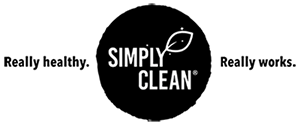New school year, fresh school habits!
When you send your little ones back to school, why not set them up with some easy, eco-friendly practices. Even if sustainability is important in your household, there are a few tricks you may not be aware of when it comes to preparing lunches and seeing them off safely.
The basics
Today, these are the norm in most households, but they’re worth mentioning:
- Make sure they take a reusable drinks bottle. Stainless steel will keep the contents cool, and they’re hard-wearing (perfect for a bit of rough and tumble!).
- Pack their lunches in a reusable container. Nowadays, there are many reusable options for carrying food. Again, many people love the benefits of durable stainless-steel containers.
- Avoid single-use plastic. There’s no need to use cling wrap – beeswax wraps and sandwich bags (washed to be reused) are readily available nowadays.
- Buy in bulk. It saves time and money, as well as reduces packaging waste.
Other tips
Other sustainable school habits you may want to put into action include:
- Check what you have before replenishing their school supplies. You probably have more packets of pens and pencils around the house than you realise!
- Walk your kids to school. Skip the car (if it’s feasible), even one or two days of the week and take them on foot. Good for them, good for you, good for the environment!
- Only pack what they intend to eat. You should quickly get an idea of how much your kids eat at school. Rather than having to throw away the scraps, you can give them what they need for a nourishing day without going overboard.
- Buy locally. It’s all too easy to do a big supermarket shop, but don’t forget the producers and small businesses on your doorstep. Supporting them means you’re also cutting down on your carbon footprint.
- Think seasonally. Purchasing out of season fruits and veggies means they’ve been delivered from afar. Buying in season cuts down on your carbon footprint, plus it gives your children the freshest and most nutritious food.
- Read the label on processed meats and cheeses. These can be high in sodium, harmful nitrates and possibly come from animals treated with antibiotics. It’s better to shop for organic and antibiotic-free meat and dairy products.
- Borrow, don’t buy. Take your kids to the local library. Swap toys or ask for hand-me-downs from friends and family. There are plenty of ways to cut down on what may ultimately become landfill.
- Get them familiar with the recycling bin. Whether it’s at school or in the community, your kid should be adept at recycling by the time they hit school. It’s a great habit to get into.
Of course, children learn from experience. So, stay vigilant and make sure you’re not tempted to take too many short-cuts in cultivating a sustainable life – kids are becoming more environmentally aware and will no doubt keep you, and all of us, on our toes!

